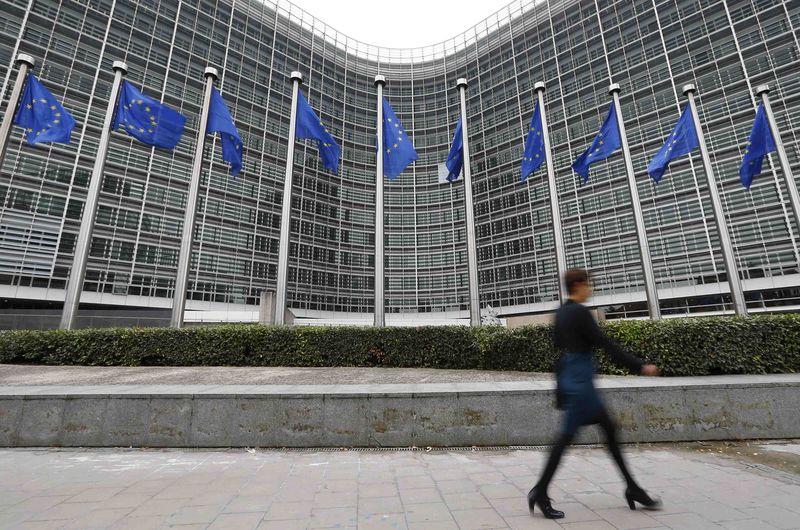Investing.com’s stocks of the week
Investing.com -The European Commission lowered its growth forecast for the euro zone on Thursday, after notable reductions in estimates for all three of the largest economies in the region - Germany, France and Italy.
The Commission highlighted the slowdown in China’s growth momentum and uncertainty surrounding the trade talks between the U.S. and China as the major risks weighing on the short-term outlook.
The EU now expects growth of 1.3% in 2019, compared to its prior November projection of 1.9%, and a 1.6% expansion for 2020, compared to the previous forecast of 2.0%.
The updated estimate for the current year is even lower that the 1.6% forecast by the International Monetary Fund or the 1.7% projected by the European Central Bank at its December meeting. The IMF and the ECB had both estimated that the euro area economy would grow by 1.7% in 2020.
The largest impact came from reductions in the forecast for German growth to 1.1% in 2019 from the prior 1.8% and 1.3% for France compared to the previous 1.6%, while Italy’s outlook was slashed a full percentage point to just 0.2%.
The Italian revision is particularly sensitive because of the dispute between the populist government in Rome and the Commission over this year's budget deficit. The Commission only agreed to hold off from a disciplinary process because of a revised budget that was based on a much higher growth forecast.
Private forecasts had been on the decline given the recent deterioration in economic data from the Germany and France, the region's largest economies. Economists surveyed by FocusEconomics cut their 2019 growth forecast for the region to 1.5% at the end of January, from 1.6% previously.
“Sluggish global trade and downbeat sentiment will weigh on the Eurozone’s momentum, although a tightening labor market, accommodative monetary policy and low inflation will provide some relief,” the report said, while highlighting downside risks from external factors.
“Rising global protectionism, a sharper slowdown in the global economy and financial-market volatility are all risks.”
Peter Vanden Houte, ING chief economist for Belgium and the euro zone, warned that “peak growth is now behind us.”
He forecast growth of just 1.4% for the euro area this year and also insisted that risks are skewed to the downside.
“In these circumstances, we see little incentive for the ECB to tighten monetary policy. We still think there could be a small hike in the deposit rate, say 15 to 20 basis points, in the fourth quarter of 2019 to start shelving the second deflation-fighting policy instrument, but this is far from a given,” he said."
